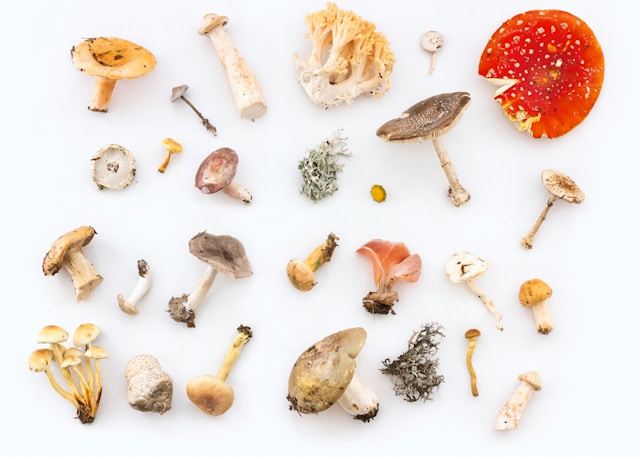Lion’s Mane mushroom, scientifically known as Hericium erinaceus, is a unique fungus with a striking appearance and a growing reputation for its potential health benefits. Let’s explore the various uses, possible side effects, and other important aspects of this intriguing mushroom.
Introduction to the Lion’s Mane Mushroom
Lion’s Mane mushroom, also known as the pom pom mushroom or beard fungus, is native to North America, Europe and Asia. Its striking appearance, with white tendrils resembling a lion’s mane, has made it a hot topic in both culinary and medicinal circles.
In recent years, Lion’s Mane has received attention for its purported health-promoting properties, leading to its inclusion in nutritional supplements and functional foods.
Health Benefits of Lion’s Mane Mushroom
The Lion’s Mane mushroom is believed to provide a range of potential health benefits, mainly attributed to its bioactive compounds, including polysaccharides, beta-glucans and hericenones.
Some research suggests that Lion’s Mane may support cognitive function and brain health by stimulating the production of nerve growth factor (NGF), a protein crucial for the survival and regeneration of nerve cells.
Additionally, Lion’s Mane has been studied for its potential to aid digestion, strengthen the immune system, and reduce inflammation. Although research is still ongoing, preliminary findings indicate promising results in these areas.
Uses of Lion’s Mane Mushroom
Traditionally, Lion’s Mane mushroom has been used in culinary practices, prized for its mild, seafood-like flavor and smooth texture. It can be fried, grilled or used in soups, stews and stir-fries.
In recent years, Lion’s Mane has grown in popularity as a dietary supplement, with capsules, powders and tinctures available for purchase. These supplements are often marketed for cognitive support, nerve health, and overall well-being.
Additionally, Lion’s Mane extract is sometimes included in skin care products for its potential antioxidant and anti-inflammatory properties.
Possible side effects and precautions
Although the Lion’s Mane mushroom is generally considered safe for consumption, some individuals may experience mild side effects, especially at higher doses. These side effects may include digestive problems such as bloating, gas, or diarrhea. Allergic reactions to Lion’s Mane are rare, but may occur in susceptible individuals.
As with any dietary supplement, it is essential to consult a physician before incorporating Lion’s Mane into your diet, especially if you have pre-existing medical conditions or are taking medications. Pregnant or lactating individuals should also exercise caution and seek medical advice before using Lion’s Mane products.
How to Incorporate Lion’s Mane Mushroom into Your Routine
Adding Lion’s Mane mushroom to your diet or supplement regimen is relatively simple. Fresh or dried Lion’s Mane mushrooms can be used in a variety of recipes, including soups, pasta dishes and omelettes. Alternatively, you can opt for Lion’s Mane supplements, available in different forms such as capsules, powders or liquid extracts.
When choosing a supplement, look for reputable brands that undergo strict quality testing and adhere to good manufacturing practices (GMP). Start with a low dose and gradually increase it as needed, monitoring for any side effects.
Exploring the potential of Lion’s Mane Mushroom
The Lion’s Mane mushroom continues to captivate the interest of researchers and health enthusiasts, thanks to its intriguing appearance and potential health benefits.
Although more studies are needed to fully understand its mechanisms of action and therapeutic potential, preliminary research suggests promising results for cognitive function, digestion, and immune system support. Whether enjoyed in culinary creations or incorporated into nutritional supplements, Lion’s Mane offers a unique way to nourish both body and mind.
As with any natural remedy, it is essential to approach Lion’s Mane with caution, seek professional advice and monitor for any side effects. With careful consideration and moderation, the Lion’s Mane mushroom can play a valuable role in supporting overall well-being.





